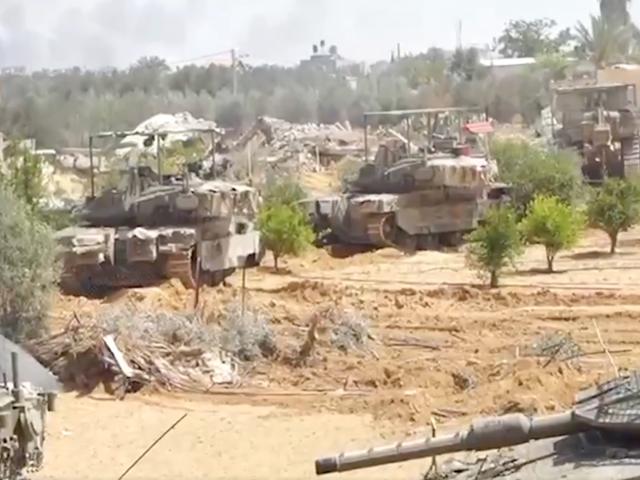In a resolute declaration of Israel's unwavering commitment to its security and the safe return of its citizens, a senior member of the Israeli negotiation team emphasized on Tuesday that the current offensive in Rafah is not the conclusion but merely a chapter in an ongoing saga. "The war will not end after the offensive in Rafah. Israel will continue its robust and effective military campaign," he asserted. "There are numerous operations prepared by the military, and Israel will maintain its presence in Gaza."
The senior official made it clear that halting the war prematurely would jeopardize the fate of the hostages. "Stopping the war would seal the fate of the hostages; therefore, an end to the fighting and a withdrawal of troops from the Strip can only occur through negotiations and once mechanisms are in place to ensure compliance with the agreement," he elaborated. This caution stems from Israel's experiences over the past decade, where cease-fire agreements and hostage deals with Hamas have often been violated. "We must ensure that we have the leverage to guarantee compliance and must have clear certainty that Hamas will not alter the terms of the deal as it progresses."
Hamas Has Its Own Day-After Plan: While Hamas’s leaders continue to reject the U.S.-backed ceasefire proposal, they have hardly been neglecting diplomacy. Ehud Yaari explains: Over the past few weeks, Hamas leaders have been engaged in talks with… https://t.co/bE86gQGOhg Mosaic pic.twitter.com/MEqsX7R38K
— Jewish Community (@JComm_BlogFeeds) June 18, 2024
Echoing this sentiment, the official stated unequivocally that Israel will only entertain negotiations based on the proposal presented by U.S. President Joe Biden. "No one can change it," he affirmed. "No other outline will be discussed apart from the one approved by the UN Security Council." The Hamas response to Biden's proposed outline, he added, amounted to a rejection of the deal, underscoring the necessity for a firm stance.
Adding to the gravity of the situation, a senior Israeli negotiator, speaking to AFP on condition of anonymity, confirmed that dozens of hostages held by Hamas in Gaza are alive. "We cannot leave them there for a long time. They will die," he warned, highlighting that the vast majority of these hostages are in the hands of Hamas terrorists. Israel's position is clear: the conflict with Hamas cannot end until all captives are released in a secure and enforceable deal. "The terror group could breach their commitment and drag out the negotiations for 10 years or more," the official cautioned.
IDF: IDF operational activity continues in the central and southern Gaza Strip where the troops eliminated terrorist cells and located large amounts of weaponry
— Israel War Room (@IsraelWarRoom) June 18, 2024
IDF troops are continuing precise, intelligence-based, operational activity in the Rafah area, eliminating numerous… pic.twitter.com/dueKKRASKO
"We cannot, at this point in time — before signing the agreement — commit to ending the war," the official reiterated. "The first phase includes negotiations about the second phase, which involves the release of the men and male soldier hostages." This layered approach to the negotiations underscores Israel's strategic patience and meticulous planning.
The Israeli negotiating team has given the green light to the Biden plan, awaiting Hamas's agreement. "We expect, and are waiting for, Hamas to say 'yes,'" the official conveyed. However, he left no room for ambiguity about the consequences of a failed agreement. "In the event we don't reach an agreement with Hamas, the IDF will continue to fight in the Gaza Strip with no less intensity than it is fighting now," he declared. "The tactics may change, but the intensity will remain."
Tens of hostages are alive in Gaza, Israeli official claims - reporthttps://t.co/GucSv9iaZO
— The Jerusalem Post (@Jerusalem_Post) June 18, 2024
In summary, Israel stands firm in its resolve to secure the release of hostages and ensure the long-term security of its citizens. The continuation of military operations in Gaza is not just a strategy but a necessity until Hamas complies with the terms of a negotiated agreement.


